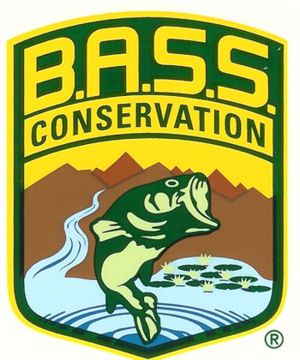Conservation Profile: BASS Conservation
Category: article
Dec 1st, 2008 by OutdoorsFIRST
Modified Dec 1st, 2008 at 12:00 AM
BassFIRST interviews BASS Conservation Director Chris Horton. Horton is well respected throughout the recreational fishing community and leads one of the largest organizations of angler advocates in the country. In this interview we find out why he is the head of BASS Conservation and what the organization does for recreational anglers and conservation.
 |
|
|
|
BF – What is BASS Conservation?
CH – BASS Conservation has been a cornerstone at BASS since Ray Scott started the company. For the last 40 years, BASS has established itself as an organization that is committed to spearheading progressive, positive change in issues regarding natural resources and angler access. From Washington, D.C., to local county governments, BASS gives anglers a seat at the table when decisions are being made that could impact our fisheries and our ability to fish.
BF – When was your organization formed?
CH – BASS was formed in 1968
BF – Why was your organization created?
CH – BASS was established to develop a network of like-minded anglers that were dedicated to the future of our aquatic resources.
BF – What does your organization do to increase the participation in sport fishing?
CH – We have seats on the Recreational Boating and Fishing Foundation, as well as the Sport Fishing and Boating Partnership Council and American Sportfishing Association. Obviously, beyond BASS’ conservation efforts, we serve a tremendous membership base of over 500,000 and deliver fishing-related content to a broad audience through our various multi-media platforms.
BF – How do you personally work at increasing sport fishing participation?
CH – I personally serve on the board of the Future Fisherman Foundation.
BF – Does your organization have support from grassroots organizations?
CH – The horsepower behind BASS’ conservation efforts has always been the BASS Federation Nation. Through local advocacy, on the ground habitat enhancement projects and access area improvements, the BFN’s have been an effective organization for addressing local issues.
BF – Do you own a boat?
CH – Yes, as a matter of fact I own two.
BF – How many times per year do you go fishing?
CH – 20-25
BF – How many employees does your organization have?
CH – More than 80
BF – What role do you see for your organization in the future regarding sport fishing?
CH – We’ll continue to be at the forefront of ensuring our aquatic resources are protected and anglers have the ability to enjoy those resources.
BF – What is your personal fishing background?
CH – II began fishing at 5 years old, and have continued to enjoy the sport for the last 30 years. In fact, I dedicated my career to fish and fisheries by becoming a fisheries biologist. I went on to become the first Reservoir Research Biologist, then the Black Bass Biologist for the Arkansas Game and Fish Commission before coming to work for BASS.
BF – Why are you the head of your organization?
CH – I have a solid background in natural resource management, I’m passionate about the resource and, as a life-long angler myself, I understand the sport fishing from the angler’s perspective.
BF – Why should recreational anglers trust you to do right by them?
CH – Since the BASS Conservation Department was formally created in 1986, it’s been headed up by competent, respected biologists that have experience with state and federal governments. Other then Trout Unlimited on occasion, BASS is the only other angling organization at the national table when important decisions are being considered. When it comes to warm-water issues, BASS is the only organization that consistently represents recreational anglers.
BF – Where do you see the future of sport fishing heading in the United States?
CH – We have some significant challenges looming on the horizon, not the least of which is having water at all in some places. If anglers will take the time to stay informed, get involved with local issues every chance they have and share the outdoor experience with someone new to the sport, the future looks bright. However, it’s going to take more anglers getting involved to make that happen. A handful of people can’t do it alone.